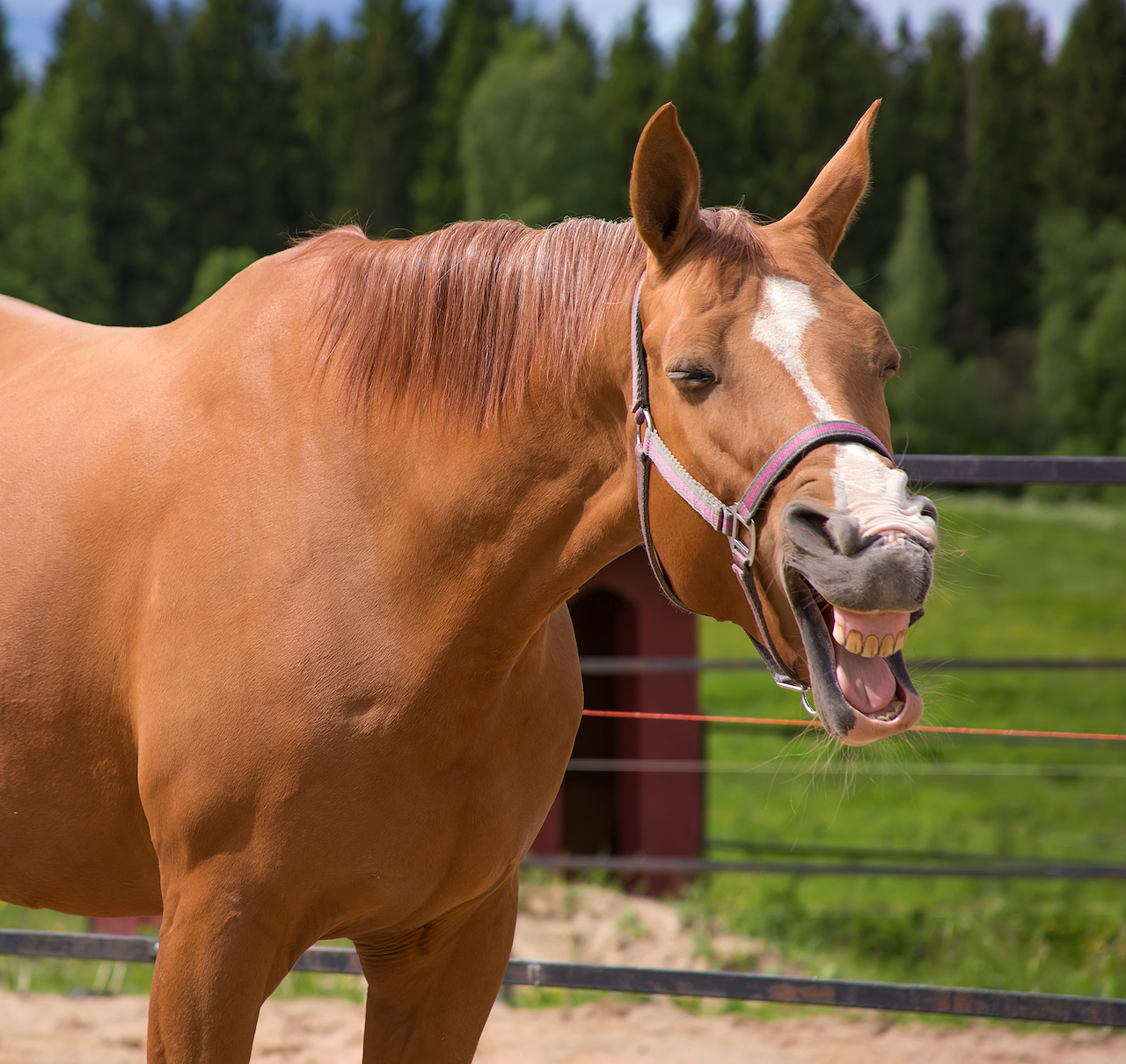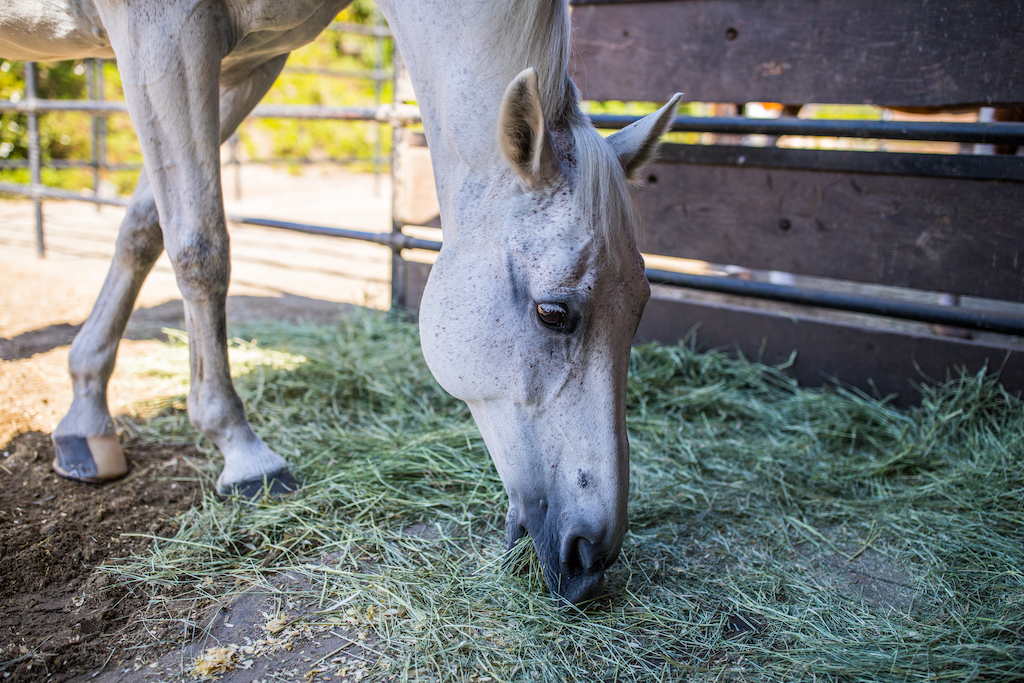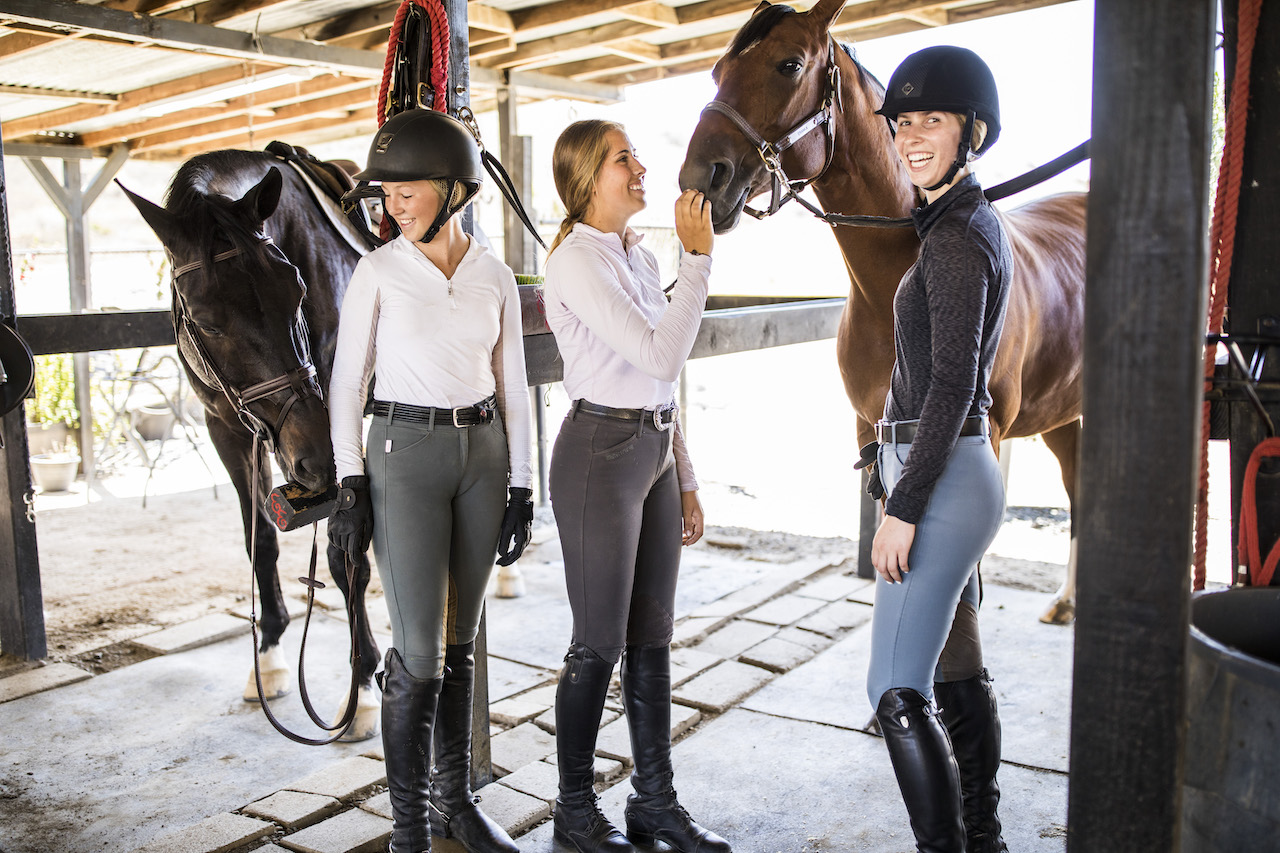Horses have one of the longest yawns in the animal kingdom. It’s an impressive thing to watch too – they last up to 8 seconds!
Yawning is an instantly recognizable behavior shared among horses and humans, but the reason horses partake in this simple toothy phenomena baffles equine and human scientists alike. The experts once agreed that it was a way to restock oxygen supply in the brain, however science has yet to find any strong evidence that this is the case. Consequently, the function of yawning remains unclear.
What we do know is that horses have been seen yawning under stress or in anticipation of a traumatic experience (like a dental examination) or when socializing with other horses. In rare cases, yawning is an indication of chronic pain, gastric ulcers, or the onset of colic. So, it’s something to always be on the watch for.
“If your horse is yawning, there’s probably a reason why. If you notice your horse yawning out of the blue, it’s important to determine the underlying cause and take appropriate action to sort out the issue quickly.”
Some of the known reasons why horses yawn:
Emotional Yawning
Just like humans, some horses yawn because they’re worried. It’s thought this type of yawning may help defuse tension in a horse, which is why you might see it happening around feed time or when the horse is under stress. Some key risk factors that may induce stress-induced yawing include intense exercise, eating large amounts of grain, stall confinement, and emotional and physical stress.
Sore Yawning
Horses sometimes yawn when they’re feeling pain or anticipating a painful experience.
For example, your horse may yawn repeatedly when he’s about to be ridden or before the farrier shoes one certain hoof.
On the contrary, some horses will yawn AFTER the cause of pain has been taken away (for example, when the bridle is removed after a ride).
Pain-yawning should never be ignored. Consider this type of yawn a low-grade warning that something is up and needs to be investigated further. If your horse yawns continuously every time you bridle him and other indications of stress (like resistance to contact and head shaking) are overlooked, his call for help may escalate to something much louder that you will finally be forced to act on.
Red Alert Yawning
In rare cases, excessive yawning can indicate a more serious problem, such as the dreaded C-word. Colic!
Finding the cause of your horse’s yawning is not always a walk in the park. However, owners should never underestimate the importance of continual yawning when diagnosing a potential case of colic. Horses suffering from gastrointestinal problems, such as colic or gastric ulcers may demonstrate excessive yawning as as natural pain-relief. So, don’t ignore.
A Social Yawn
Social bonding causes a horse to yawn too -just like dogs. Horses yawn when relaxing with their pals. In fact, studies show close social contact may be a positive trigger of the ‘relaxed yawn’.
On the other hand, a stallion’s yawn is usually connected with aggressive or aroused behavior, like when a horse threatens, bites or chases another. Sometimes, when a stallion comes face-to-face with an aggressor, he will offer a yawn in response, just like “a raising of the white flag” to show the other horse he is not interested in fighting.
There are times when a yawn is, well, just a yawn.
Usually when your horse yawns, it’s nothing to worry about. Yawning is usually a normal part of your horse’s daily life, just as it is for us human beings.
The best way to understand the difference between everyday equine body language and a cry for help, is simply to learn to read your horse. A great way to do this is to spend time doing nothing but observing him relaxing in the field with his buddies. That way, you’re aware of his ‘at ease’ behavior, which will make any changes instantly noticeable.


